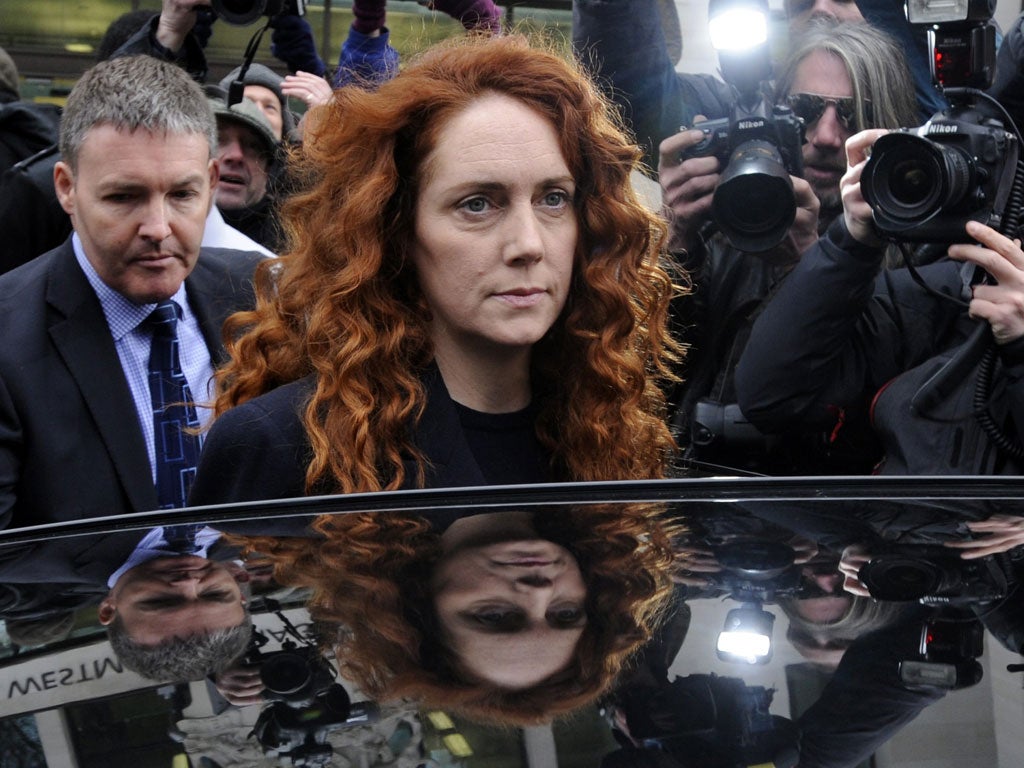It's not all bad news: listening to Leveson yesterday, I realised this is an opportunity for the press
Our industry is beset by chronic structural problems, but it is worth taking away some positives from what has been a long, hard and useful bout of introspection


Where does the newspaper industry go from here? Call me an incurable optimist, but I believe the lasting effect of Leveson will be a positive one. Britain’s national newspapers are beset by structural problems - the historic decline in circulations, the bleeding away of advertising revenue, and the challenge of making ends meet in a digital world - but one of the major issues we have is that of trust, or rather a lack of it.
Over the past eight months, the entrails of our newspapers have been examined in fine detail, and the public, through Lord Justice Leveson’s inquiry, has been given a microscope to inspect every blemish, every rotten corpuscle, every defective gene. It did not make for a healthy picture, and it doesn’t really matter that no other trade or profession - banking, law, insurance, you name it - would have emerged from such a process much better.
Trust
The fact is that we need the trust of the public more than most. This is particularly true in an age when the Internet is where reputations are casually trashed, where unsourced gossip is presented as fact and where bullying and intimidation takes place on a regular basis. Doesn’t this leave an opportunity for newspapers? As Lord Justice Leveson said yesterday, there are “new and tangible benefits” for the Press in establishing a new contract of trust with the public.
After all, we have an authority vested by our individual histories and pedigrees. Back in 2000, when I was editing The Independent, I dared to voice the opinion that the Press Complaints Commission, as it was then formulated, was protecting the interests of the newspapers who funded it rather than the public it was designed to serve. (At the time, its director - the very same man who, as Lord Black of Brentwood has co-authored the proposals for self-regulation this time around - was so close to the editor of the News of the World that they used to go on holiday together.)
Anyway, my idea that there should be more transparency in the workings of the PCC, and that there may need to be some independent oversight to rebuild faith in its decisions, was met with stern opposition from some of my colleagues. The then editor of The Observer suggested I should be taken out and shot, while Paul Dacre, then as now editor of the Daily Mail, said that I had betrayed my trade by offering up these heretical thoughts.
My view as a relative outsider - although I was editor-in-chief of The Independent for 13 years, I was never invited to serve on the PCC, even though editors with less experience were - was that unless the public had confidence in the process of self-regulation, it was ultimately doomed as a concept. The impression was that it was governed by a self-interested elite who weren’t only marking their own homework, they were awarding themselves scholarships. That is one big reason is why we are where we are.
Long overdue
Another thought to bear in mind is that this industry’s narrative over recent years is not about a wholesale abrogation of responsibility and a general decline in standards, although the economic hardships felt by most newspapers has resulted in resources being cut, and an influx of younger, cheaper journalists with the inevitable effect on accuracy and quality. No, we arrived at Leveson because of an abuse of power - within the police, within the body politic and within one newspaper group in particular. News International became just too powerful, and exercised that power by bending politicians, the police and public officials to their will.
In its own way, the incident when James Murdoch and Rebekah Brooks turned up uninvited in the newsroom of The Independent in the style of expensively-educated Mafiosi to lay down the law vividly illustrated this belief in their own hegemony. That was a little more than two years ago, but as I listened to Lord Justice Leveson yesterday, it felt like a completely different age. Which I suppose it was. And now the Press must discover a new way of conducting itself. Not before time, you might say.
Join our commenting forum
Join thought-provoking conversations, follow other Independent readers and see their replies
Comments
Bookmark popover
Removed from bookmarks